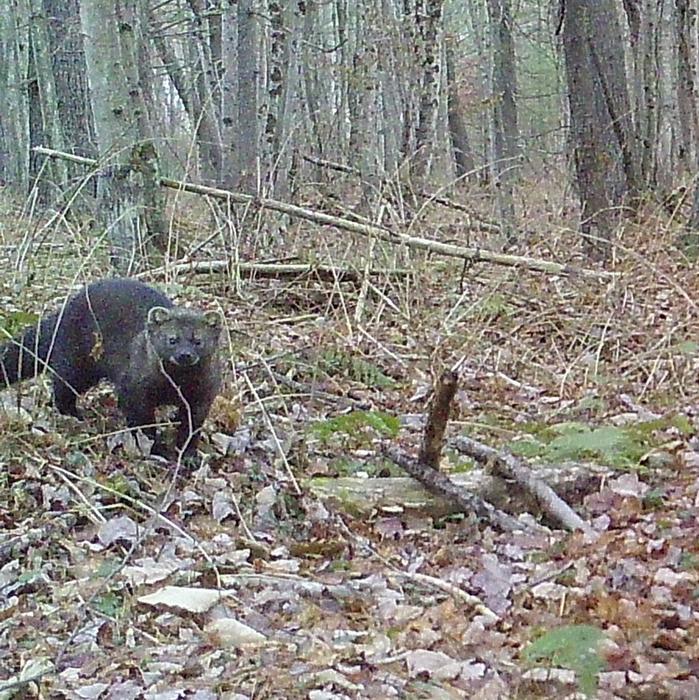Fishers — also called fisher cats — are not cats, nor do they fish. But these members of the weasel family, common throughout New Hampshire and once highly valued for their fur, are in trouble; their population has declined steadily for two decades.

Credit: Camera trap image courtesy Rem Moll, UNH.
Fishers — also called fisher cats — are not cats, nor do they fish. But these members of the weasel family, common throughout New Hampshire and once highly valued for their fur, are in trouble; their population has declined steadily for two decades.
With a new grant of $1.2 million, University of New Hampshire researchers will partner with U.S. Fish and Wildlife Service and the N.H. Fish and Game Department to help determine why fishers in northern New England are dying out.
“Fishers are an important part of the forest ecosystem and tell us a lot about the dynamics of the carnivore community,” says Rem Moll, assistant professor in natural resources and environment. “They help control rodent populations and are also one of the few predators that can successfully hunt porcupines, and that might have benefits for forest health by minimizing bark and tree damage caused by porcupines.”
Along with wildlife cameras set up in forests around the state, researchers will track the population by outfitting them with GPS collars to better track and monitor survival and field mortalities. The collars will also include transmitters with mortality sensors for field recovery. N.H. Veterinary Diagnostics Laboratory (NHVDL) at UNH will then analyze pathology results to look for any toxins, blood-borne pathogens, bacteria and other data that could identify disease in tissue. The goal is to help determine specific causes of mortality and provide a comprehensive set of tools to assess the health of the Granite State’s fisher population.
“Recent testing in our lab has found a high level of rodenticides, a specific pesticide used to control rodents, in New England fishers and we’ll be looking for data on that as well as any other specific diseases, using tests like blood work, to look for any trends in overall survival rates,” says David Needle, pathology section chief at NHVDL and a clinical associate professor.
Researchers say there a number of factors that could be threatening the New England fisher. Wildlife cameras show that fisher populations appear to coexist with humans near developed areas in southeastern New Hampshire. That increases the possibility that rodenticides are playing a role in fisher mortality, especially when closing up summer homes for the winter season. Rodents who are exposed to the pesticide can be prey for the fishers and may in turn cause them harm as well. Predation by bobcats, whose population is rising, may also be a factor in the decline of the fisher population.
The University of New Hampshire inspires innovation and transforms lives in our state, nation and world. More than 16,000 students from 49 states and 82 countries engage with an award-winning faculty in top-ranked programs in business, engineering, law, health and human services, liberal arts and the sciences across more than 200 programs of study. A Carnegie Classification R1 institution, UNH partners with NASA, NOAA, NSF, and NIH, and received over $210 million in competitive external funding in FY23 to further explore and define the frontiers of land, sea and space.




